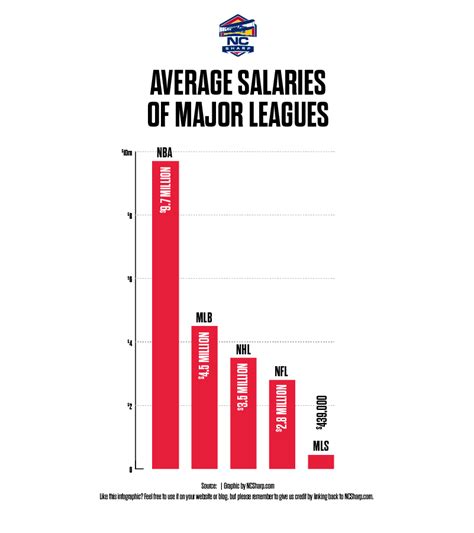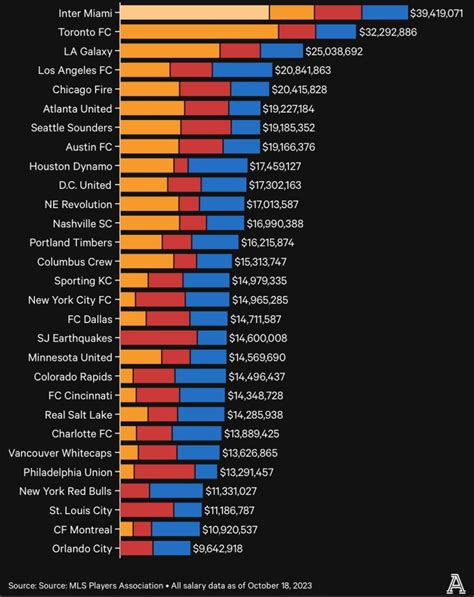A Master of Library Science (MLS) or a related degree like a Master of Library and Information Science (MLIS) is the key to a dynamic and expanding field of information management. While the classic image of a librarian remains, the career potential for MLS graduates now extends into corporate archives, data management, digital curation, and high-level research. If you're considering this path, a crucial question is: what is the earning potential?
While entry-level salaries may begin around $40,000, the median salary for professionals in this field is a competitive $64,370 per year, with top earners and specialists commanding salaries well over $100,000. This article will break down the salary you can expect with an MLS degree and the key factors that will shape your career-long earnings.
*Note on the Term "MLS":* *While "MLS" can also stand for Major League Soccer, this professional guide focuses on the career path associated with a Master of Library Science (MLS) degree.*
What Does a Professional with a Master of Library Science (MLS) Do?

Forget the outdated stereotypes. Today’s information professional is a vital manager of an organization's most critical asset: knowledge. They are tech-savvy, research-oriented, and experts in organization and accessibility.
Core responsibilities often include:
- Information Management: Organizing, classifying, and maintaining collections of both physical and digital materials.
- Research & Analysis: Assisting students, faculty, lawyers, doctors, and corporate leaders with complex research requests.
- Digital Curation & Archiving: Managing digital assets, databases, and online collections to ensure long-term preservation and access.
- User Instruction & Outreach: Teaching patrons and employees how to find and evaluate information effectively and promoting library services.
- Systems Management: Implementing and maintaining library software, databases, and other technology.
These skills are applied in diverse environments, from public and academic libraries to law firms, hospitals, museums, and the federal government.
Average Salary for Professionals with an MLS Degree

Salary data shows a strong and stable earning potential for those with an MLS degree. The most reliable data comes from government sources that track compensation across the country.
According to the U.S. Bureau of Labor Statistics (BLS), the median annual wage for Librarians and Library Media Specialists was $64,370 in May 2023. This is the midpoint—half of all professionals in the field earned more than this amount, and half earned less.
The salary range is quite broad, reflecting the diversity of roles and experience levels:
- Lowest 10%: Earned less than $40,510 (typical for entry-level positions or in lower-cost-of-living areas).
- Median (50%): Earned $64,370.
- Highest 10%: Earned more than $104,800 (common for senior-level directors, specialized roles, and high-paying industries).
Salary aggregators reinforce this data. Salary.com, for instance, places the average U.S. salary for a Librarian I (entry-level) between $58,000 and $71,000, while a Library Director can earn between $93,000 and $131,000 as of late 2023.
Key Factors That Influence MLS Salaries

Your specific salary will depend on a combination of factors. Understanding these levers is the key to maximizing your earning potential throughout your career.
### Level of Education
While the MLS is the standard qualifying degree, additional education can significantly boost your income, particularly for specialized roles. A law librarian with both an MLS and a Juris Doctor (JD) degree, or a health sciences librarian with a second master's in public health, will command a much higher salary. In academia, a Ph.D. in addition to an MLS is often required for director-level positions at major research universities, which corresponds with top-tier pay.
### Years of Experience
Experience is one of the most significant drivers of salary growth.
- Entry-Level (0-3 years): Professionals starting their careers can expect salaries in the lower range, typically from $40,000 to $55,000. They focus on developing core competencies in roles like Reference Librarian or Cataloger.
- Mid-Career (4-10 years): With proven skills and some supervisory experience, salaries often align with or exceed the national median, ranging from $55,000 to $75,000. Professionals may move into roles like department head or systems librarian.
- Senior/Director Level (10+ years): Extensive experience, strategic leadership, and budget management responsibilities push salaries into the top brackets. It's common for directors of library systems, chief information officers, and senior corporate archivists to earn $85,000 to $130,000+.
### Geographic Location
Where you work matters immensely. Salaries are often adjusted to reflect the local cost of living and regional demand for information professionals. According to the BLS, the top-paying states for librarians are:
1. District of Columbia: $94,000 (Median Annual Wage)
2. California: $89,170
3. Washington: $83,390
4. Maryland: $80,480
5. Massachusetts: $77,660
Conversely, states with a lower cost of living, such as South Dakota, Mississippi, and West Virginia, report median salaries closer to the $45,000-$50,000 range.
### Company Type
The type of organization you work for is a major predictor of your salary. The BLS reports the following median annual wages for librarians by top industries:
- Federal Government (Executive Branch): This is often the highest-paying sector, with roles at institutions like the Library of Congress or National Archives.
- Colleges, universities, and professional schools: $74,250
- Elementary and secondary schools: $69,320
- Local government (public libraries): $59,010
Outside of these categories, special libraries in corporate settings—such as law firms, medical research centers, or financial institutions—can offer some of the highest salaries, as the librarian's specialized research directly impacts business outcomes.
### Area of Specialization
The modern MLS degree allows for deep specialization, and those with in-demand technical or subject-matter expertise are compensated accordingly. High-paying specializations include:
- Law Librarianship: Requires expertise in legal research databases and resources.
- Medical or Health Sciences Librarianship: Involves managing clinical data and supporting medical research.
- Systems & Technology Librarianship: Focuses on managing the library's IT infrastructure, databases, and digital platforms.
- Data Curation & Digital Asset Management: A growing field focused on managing and preserving large-scale digital datasets and media for corporations and research institutions.
Job Outlook

The career outlook for information professionals is stable and evolving. The BLS projects a 3% growth for Librarians and Library Media Specialists from 2022 to 2032, which is about average for all occupations.
However, this statistic doesn't tell the whole story. The skills gained in an MLS program—information organization, data management, advanced research, and user experience—are increasingly valuable. Graduates are finding well-paying roles beyond the "librarian" title, such as Information Architect, Data Asset Manager, Digital Archivist, and UX Researcher. As organizations grapple with an explosion of digital information, the demand for professionals who can manage it effectively will continue to grow.
Conclusion

A Master of Library Science is more than a degree; it's a launchpad into a diverse career field dedicated to managing information and knowledge. While the median salary of around $64,370 provides a solid financial foundation, your ultimate earning potential is in your hands.
To maximize your salary, focus on these key takeaways:
- Pursue In-Demand Specializations: Focus on technology, data, or a high-stakes industry like law or medicine.
- Be Strategic About Location: Consider roles in metropolitan areas or states with higher-than-average wages.
- Gain Experience and Lead: Seek out leadership opportunities and projects that demonstrate your value.
- Consider Your Employer: Recognize that federal, academic, and corporate roles often pay more than public or K-12 library positions.
By strategically navigating these factors, you can build a financially rewarding and intellectually stimulating career with your MLS degree.
